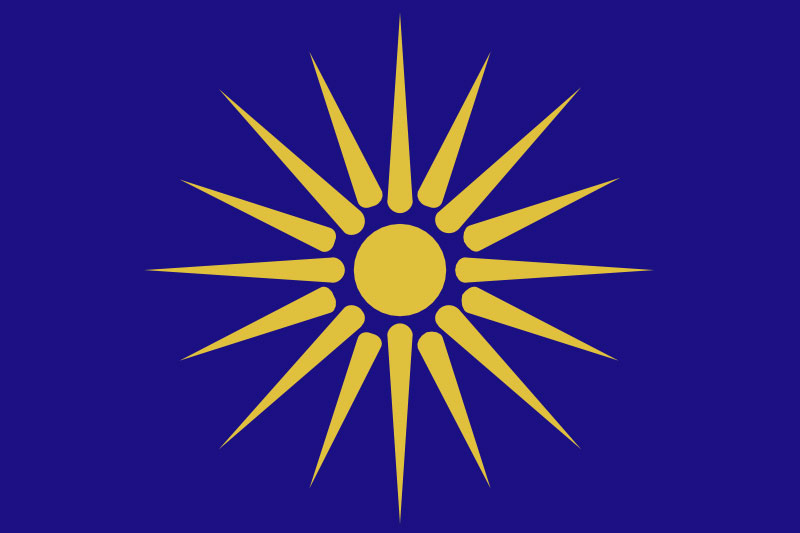HISTORICAL BACKGROUND
Article 16 of the Constitution of Macedonia provides:
The freedom of speech, public address, public information and the establishment of institutions for public information is guaranteed. Free access to information and the freedom of reception and transmission of information are guaranteed.(1)
The Law on Free Access to Information of Public Character was adopted on 25 January 2006. It is scheduled to go into force in September 2006.(2)
The law allows any natural or legal person to obtain information from state and municipal bodies and natural and legal persons who are performing public functions. The requests can be oral, written or electronic. Requests must be responded to in 10 days.
There are exemptions for classified information, personal data, confidential information, tax violations, pending investigations, documents being compiled if it would cause misunderstanding, environmental protection, and protecting intellectual property. All the exemptions are subject to a test that requires release if the public interest is greater than the harm.
Denials can be appealed to the Commission for the Protection of the Right to Free Access to Information of Public Character. The Commission can decide on complaints. It is also tasked to ensure the law is implemented, publishes the list of information holders, issues opinions on other laws, trains public officials and compiles an annual report of all the statistics for requests in the previous year. The Commission was established in May 2006.
Appeals of decisions of the Commission can be filed in a court.
Public bodies are required to designate officials to be responsible for implementation of the act. The bodies are required to make public information on their organizations and structures, competencies, regulations, programs and activities, procurements, costs and publishing of decisions. They must maintain and regularly update and publish a list of information that they hold. They must also maintain detailed statistics on requests made and the final outcomes.
The law also provides for a limited whistleblower protection that limits sanctions for any public employee who discloses protected information that reveals abuses of power or corruption or that is for the prevention of serious threats to human health and life or the environment.
Fines can be imposed against officials who fail to follow various requirements of the law.
The Law on Classified Information was adopted in 2004 to implement EU and NATO standards on protections of secret information.(3) It creates four levels of classification. The Directorate for Security of Classified Information oversees the functioning of the law.
The Law on Personal Data Protection was adopted in January 2005, replacing a 1994 law.(4) Individuals have a right of access to their personal data held by public and private bodies.
Macedonia accepted the Aarhus Convention in July 1999. The 2005 Law on Environment provides for a right to access from government bodies and others supervised by the state.(5)
25 JANUARY 2006 Macedonian Parliament Adopts Long-Awaited Freedom of Information Law
On January 25, 2006, the Parliament of Macedonia adopted a FOI Law. The law will go into force on June 1, 2006. The law establishes the State Commission for free access, which would have authority to rule on complaints from individuals about the government's refusal to provide information, after publishing in Official Gazette of Macedonia. Free access to information and the freedom of reception and transmission of information are also guaranteed with the Article 16 of the Macedonian Constitution.
The non-governmental sector in Macedonia initiated process for drafting FOI law in July 2003. Since that time, civil society groups have been involved in organizing public hearing and debates and working to acheive needed improvements in the text of the draft law. Indeed, during this time, there were dramatic changes made to the proposed law and its adoption was postponed several times.
Earlier in January 2006, however, a letter signed by 126 Macedonia civil society organization called for the prompt adoption of the proposed law but also expressed several concerns about the provisions of the new law, including:
The law does not claim final authority in matters of freedom of information, and is vulnerable to being eclipsed by secrecy laws, such as the Classified Information Law.
Plans to establish a commission charged with hearing appeals and promoting implementation of the law have been dropped in favour of adjudication in the regular court system. Experience across many countries shows that an independent administrative complaints mechanism is essential to the effective functioning of an access to information system; court procedures are simply too lengthy and costly for the vast majority of potential information complainants.
The law does not contain a clear "harm test", which would stipulate that requests for information should never be refused unless disclosure would pose a serious risk of actual harm.
The law does not guarantee protection of whistleblowers
Unfortunately the concerns of the civil society were not taken into account when drafting the final version of the Law that passed the parliament. NGOs and FOI activists push for changes to the Law and hope that the Macedonian Parliament will adopt it taking into consideration their remarks and recommendations. Meanwhile, Macedonia remains the only country in the region that has not adopted a Freedom of Information Law.
Notes
Constitution of the Republic of Macedonia. http://www.usud.gov.mk/domino/WEBSUD.nsf/UstavE?OpenPage
Law on Free Access to Information of Public Character.
Law on Classified Information. http://www.mediacenter.org.mk/files//pdf/classlaw.pdf
Law on Personal Data Protection.
Law on Environment.





















